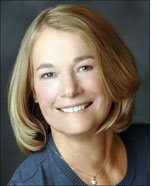By Laurel Corona
 SAN DIEGO — The official charged with rounding up Parisian Jews in 1942 admonishes the participating officers in the 2010 film La Rafle (“The Roundup”) that the ethics of what they are about to do “are not to be debated.” The moral dimensions of the roundup and the eventual deportation and murder of 14,000 Parisian Jews have remained largely unstudied and undebated by the French, as a result of unwillingness to relinquish the version of events in which they were passive victims of a Nazi occupation whose worst excesses were beyond their control or even their knowledge.
SAN DIEGO — The official charged with rounding up Parisian Jews in 1942 admonishes the participating officers in the 2010 film La Rafle (“The Roundup”) that the ethics of what they are about to do “are not to be debated.” The moral dimensions of the roundup and the eventual deportation and murder of 14,000 Parisian Jews have remained largely unstudied and undebated by the French, as a result of unwillingness to relinquish the version of events in which they were passive victims of a Nazi occupation whose worst excesses were beyond their control or even their knowledge.
La Rafle is the first major film to focus entirely on the roundup of Jews to the Velodrome d’Hiver, a large bicycling stadium in Paris, and the aftermath of that horrific decision. The need to present a nuanced view of the French people is clearly on director Rose Bosch’s mind. Although the willing and almost gleeful collaboration of key government officials and the indifference and even hostility of many non-Jews toward their Jewish neighbors are all part of the story, it is also a fact that of the 24,000 Parisian Jews the French government believed it could deliver to the Nazis, 10,000 fewer ended up in the velodrome largely as a result of sympathetic French men and women willing to help their neighbors.
We see a woman who agrees to call out the name of a fictitious lost pet to warn her Jewish friends that the Gestapo are coming, a fire chief who defies the Nazis to bring water to the thousands imprisoned in the velodrome, and a Red Cross nurse, Annette Monod, ably played by Melanie Laurent (Inglourious Basterds) who struggles at the risk of her own health and safety to tend to Jewish children suffering with thirst, hunger, and disease in the stadium and later in the camp at Beaune de Rolande. The film makes it clear that the people and stories portrayed are real, and the heroism portrayed by Jews and non-Jews is indeed commendable, though insufficient to ward off the horrors to come.
The film is rife with dread of what we know in hindsight lies ahead. The story is familiar: insults escalate from snide comments about how the yellow stars are handy to clarify whom to scorn, to restrictions on Jewish activities, to the inevitable jackboots in the night. If there is anyone who has at this point never seen a Holocaust film, this would be a good one to explain in the context of a compelling story why the Jews were not more worried about their deteriorating situation, or why they did not fight back more effectively, but most viewers will find La Rafle valuable for its poignancy rather than for any original ground it treads or information it conveys.
This is the main shortcoming of the film. Though we may not know much about this particular crime against humanity, we have heard and seen numerous stories like it. This high-budget offering is reminiscent of Schindler’s List in directorial style, focused on building strong affection and sympathy for the characters, especially the children. Most notable among these are adorable identical twins Mathieu and Romain di Concerto, who play the role of Noë (Nono) Zygler; and Hugo Leverdez, who plays eleven-year-old Joseph (Jo) Weismann. The recollections of Weismann, in his eighties now, are the source for one of several interrelated stories in the film.
The problem is that even though hearts will be tugged by the story, many viewers are likely to feel they have seen it before, told and filmed in much the same way, with much of the same pathos. Yes, viewers will probably cry at predictable times, and be shocked, angry, and bewildered on cue as well, but it all seems a bit calculated. This is especially true in the improbable closing scene where after years of separation both Nono and Jo–2 of only 25 survivors from the more than 4000 children rounded up–show up at the same time at the Red Cross station where Annette Monod happens to be working. The music rises, the background grows unfocused, and the viewer succumbs to tears.
A bit of manipulation of feelings isn’t necessarily a bad thing. Every Holocaust story deserves telling, and one can never be too well informed about what happened in that era. The film should be evaluated not just for its originality but for the grace and skill with which the story is presented. In that, it is an excellent package. The cinematography is superb, the music by Christian Henson is evocative, and the actors are all effective (though more uniformly attractive than is realistic), making this a highly recommended film. Just don’t expect anything terribly different–but then again, why should we, when we know how six million such stories ended.
La Rafle will be presented by the San Diego Jewish Film Festival on Saturday, Feb. 12 at 8:30 p.m. at the Ultrastar Mission Valley and at the Clairemont Reading 14 on Saturday, Feb. 19 at 8:30 p.m.
*
Corona is a professor of humanities at San Diego City College, and a novelist